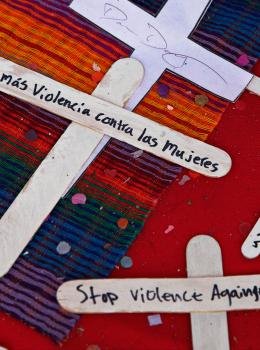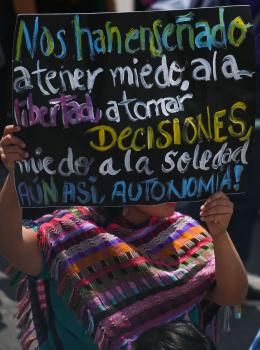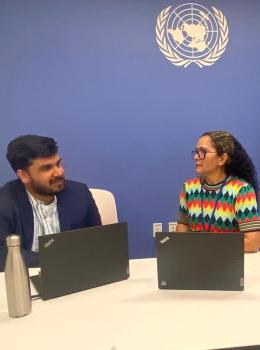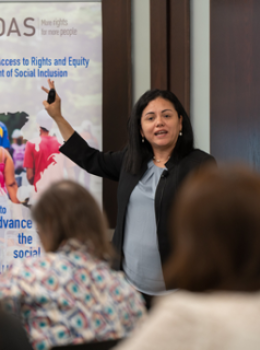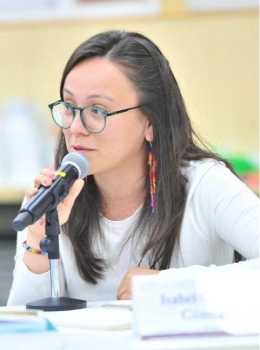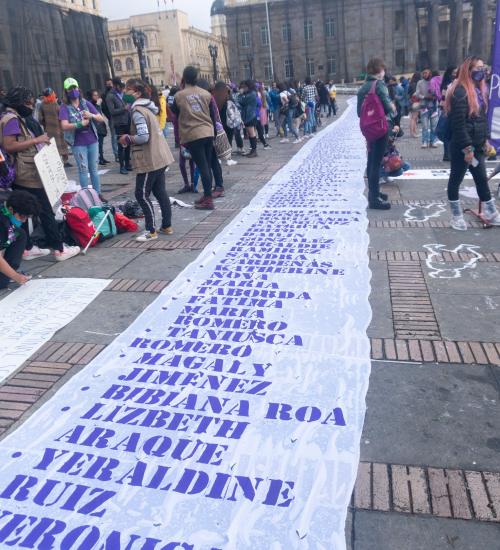
POLICY AND PRACTICE RESEARCH LAB
Notre Dame Eliminating Violence Against Women (E-VAW)
PI: Abby Córdova
Focusing on Latin America and the Caribbean, the Notre Dame Eliminating Violence Against Women (E-VAW) Lab responds to the pressing need to draw evidence-based policies and strategies, which can help prevent gender-based violence, more effectively provide services, and increase access to justice for survivors of all genders. Conducting multi-method research, the Notre Dame E-VAW Lab helps inform and accompany the efforts of local and international organizations to eradicate gender-based violence and promote democracy and gender equality across the world.
Español
Gender-based violence – a form of violence driven by stereotypical gender norms and power inequalities – is a widespread human rights violation across the world that poses a high cost for society as a whole. The statistics on violence against women (VAW) are astounding: globally, about one in three women have been subjected to physical and/or sexual violence in their lifetime, and on average, 137 women and girls are killed every day by a family member or intimate partner. Alongside the tragic loss of women’s lives and the adverse consequences for women’s health, VAW also poses a high cost for society, as it lowers productivity and social capital. When calculated as a proportion of the global gross domestic product, intimate partner violence is about 27 times higher than the combined cost of terrorism, civil war, and international conflict. In many countries, diverse forms of large-scale violence such as organized crime and the militarization of public security have exacerbated lethal and non-lethal violence against women, including sexual and intimate partner violence. Citizens’ responses to violence in general and gender-based violence specifically often do not favor victims and survivors. Recent data gathered by the E-VAW Lab show that citizens similarly blame both female and male victims for having suffered from sexual violence.
In societies where peace accords have put an end to conflict, lethal and non-lethal violence persists despite institutional innovation in political inclusion for previously excluded actors. Particularly, gender norms still influence threats against political leadership and social mobilization. Burgeoning research shows that stereotypical gender roles increase risks for women mobilizing for equality and justice. Also, previous and ongoing studies suggest that citizens express higher disregard for violence against women taking on leadership in post-accord settings compared to their male counterparts.
Scholars, students, and practitioners from diverse backgrounds and institutional affiliations have joined the E-VAW Lab to work together on a common goal to help eradicate gender-based discrimination in countries of the Global South.






